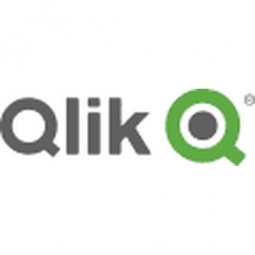Download PDF
Mercedes-Benz saves 25 man-days annually on QA refreshes
Technology Category
- Functional Applications - Enterprise Resource Planning Systems (ERP)
- Functional Applications - Enterprise Asset Management Systems (EAM)
Applicable Industries
- Automotive
Applicable Functions
- Discrete Manufacturing
- Quality Assurance
Use Cases
- Predictive Maintenance
- Manufacturing System Automation
Services
- System Integration
- Training
The Challenge
Mercedes-Benz USA implemented SAP Finance and Controlling in 2000, followed by Parts Logistics, Materials Management, Sales and Distribution, and Production Planning in recent years. With five business units running on two instances of SAP, the environment has become progressively more complex. The total SAP system now houses two terabytes of data, with pricing tables alone adding up to 400 million records. The primary issue caused by the refreshes was that they took the non-production systems offline for several workdays in the middle of the week, which would negatively affect ongoing projects. Mercedes-Benz wanted to be able to provide developers with the data they needed for testing on an as-needed basis while reducing the number of full refreshes required per year. The company also wanted to be able to protect version information.
About The Customer
Mercedes-Benz USA (MBUSA), headquartered in Montvale, New Jersey, is responsible for the distribution, marketing and customer service for all MercedesBenz and Maybach products in the United States. MBUSA offers drivers the most diverse line-up in the luxury segment with 12 model lines ranging from the sporty C-Class to the flagship S-Class sedans and the SLS AMG supercar. MBUSA is also responsible for the distribution, marketing and customer service of Mercedes-Benz Sprinter Vans in the US. More information on MBUSA and its products can be found at www.mbusa.com and www. mbsprinterusa.com.
The Solution
After thoroughly investigating its options, Mercedes-Benz determined Attunity Gold Client Solutions would best fit their needs, allowing data selection on virtually any parameters developers needed between full refreshes. It would also allow the company to keep costs down by utilizing existing infrastructure rather than purchasing new servers. Another determining factor was the software’s ability to maintain number sequences for entries such as sales data. Implementation took roughly one week, including training BASIS team members on using the tool in day-to-day scenarios. The Client Construct part of Attunity Gold Client Solutions allows the company to refresh full master data in QA, while Data Echo provides the ability to select more targeted data for specific purposes.
Operational Impact
Quantitative Benefit
Related Case Studies.

Case Study
Integral Plant Maintenance
Mercedes-Benz and his partner GAZ chose Siemens to be its maintenance partner at a new engine plant in Yaroslavl, Russia. The new plant offers a capacity to manufacture diesel engines for the Russian market, for locally produced Sprinter Classic. In addition to engines for the local market, the Yaroslavl plant will also produce spare parts. Mercedes-Benz Russia and his partner needed a service partner in order to ensure the operation of these lines in a maintenance partnership arrangement. The challenges included coordinating the entire maintenance management operation, in particular inspections, corrective and predictive maintenance activities, and the optimizing spare parts management. Siemens developed a customized maintenance solution that includes all electronic and mechanical maintenance activities (Integral Plant Maintenance).

Case Study
Monitoring of Pressure Pumps in Automotive Industry
A large German/American producer of auto parts uses high-pressure pumps to deburr machined parts as a part of its production and quality check process. They decided to monitor these pumps to make sure they work properly and that they can see any indications leading to a potential failure before it affects their process.









